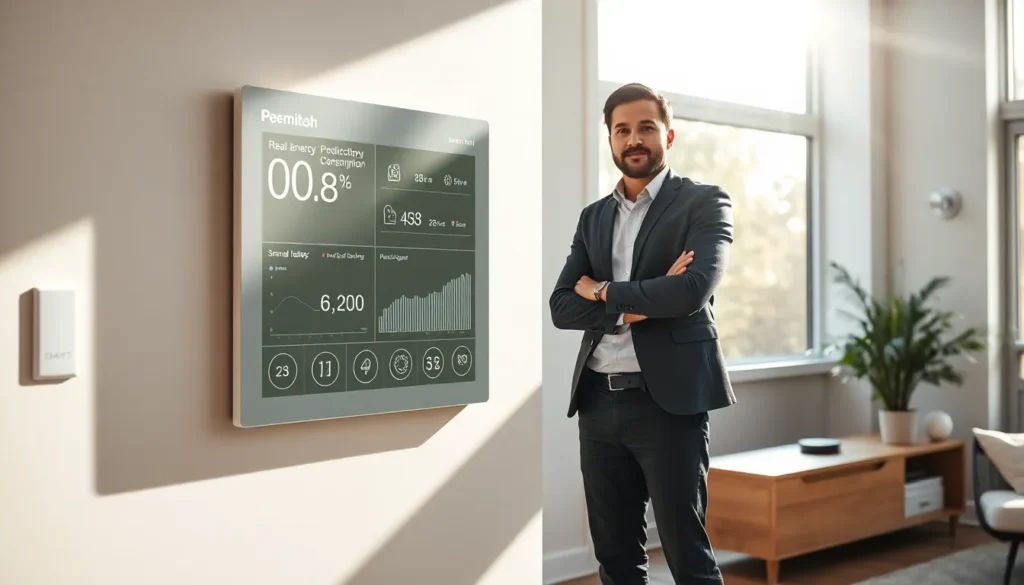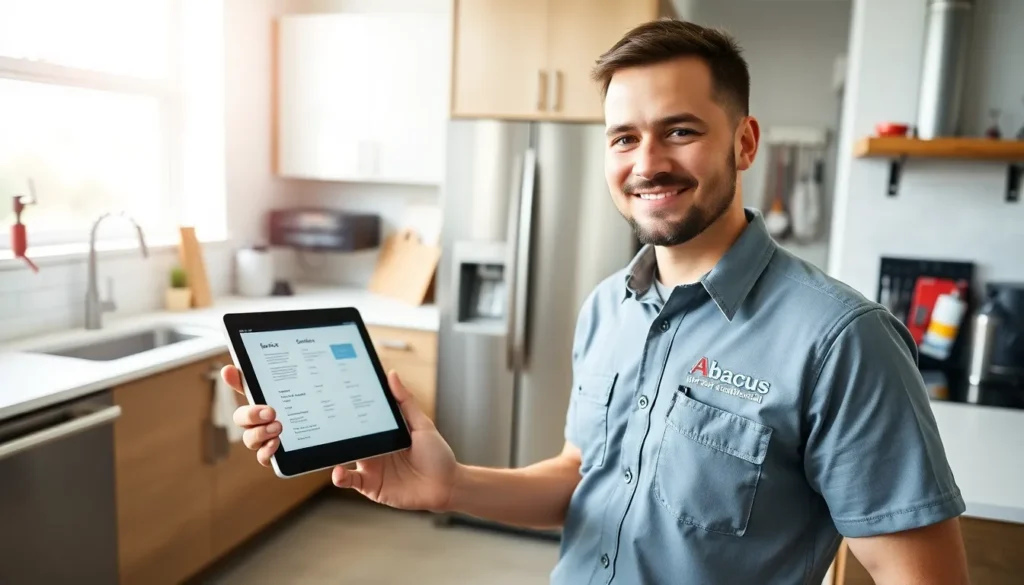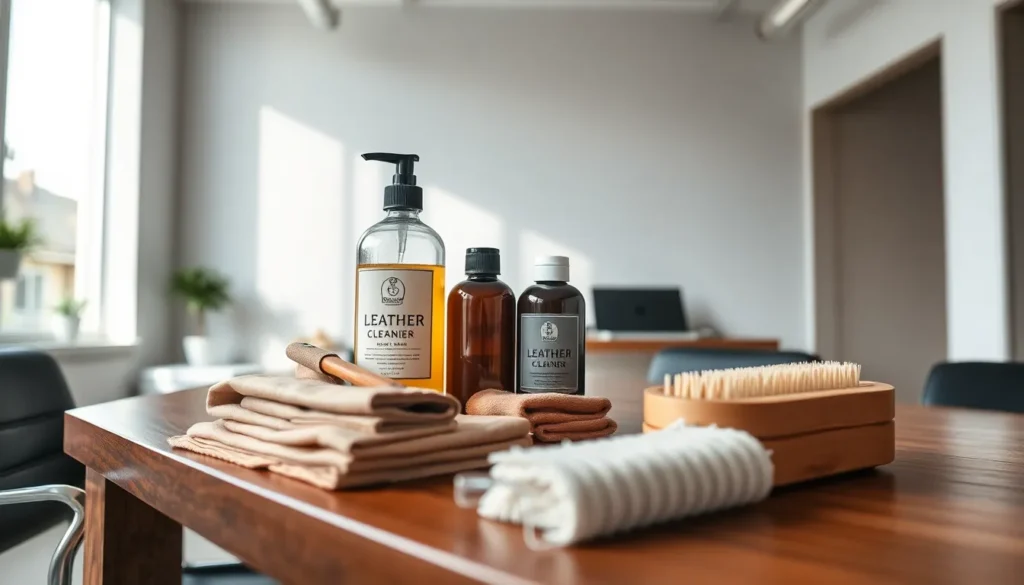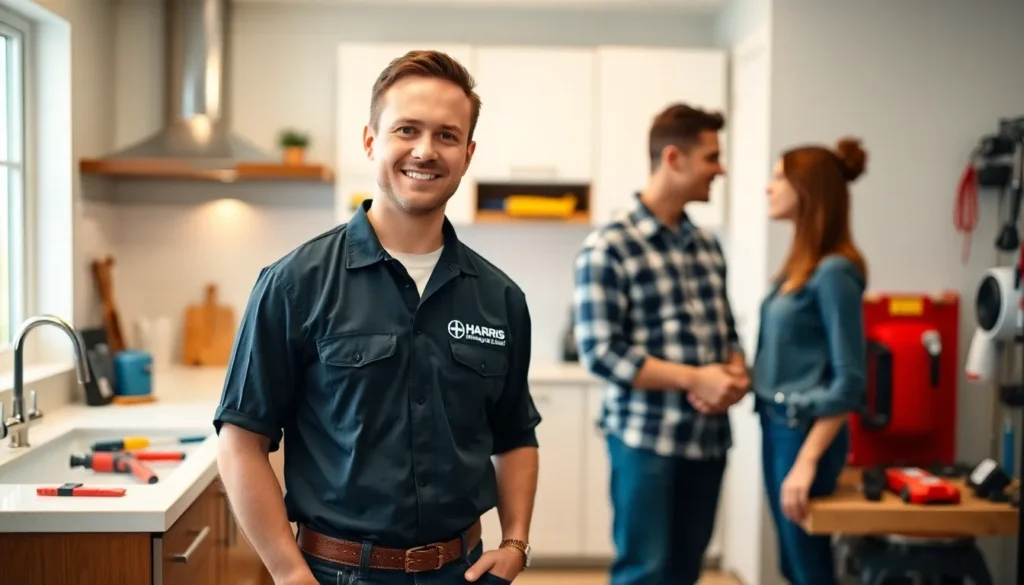In today’s fast-paced world, maintaining a clean and organized space can feel overwhelming. Yet, organized cleaning isn’t just about tidiness; it’s a powerful method that promotes efficiency and reduces stress. By transforming cluttered environments into serene spaces, individuals can reclaim their time and focus on what truly matters.
Embracing organized cleaning practices allows for a systematic approach to tidying up, ensuring every item has its place. This method not only enhances the aesthetic appeal of a home or office but also contributes to a healthier mindset. With the right strategies, anyone can create an organized sanctuary that fosters productivity and peace.
Table of Contents
ToggleWhat Is Organized Cleaning?
Organized cleaning refers to a systematic approach to cleaning that emphasizes structure and efficiency. It involves categorizing cleaning tasks and establishing routines that streamline the cleaning process. Organized cleaning transforms chaotic spaces into well-ordered environments.
Organized cleaning prioritizes decluttering, enabling individuals to identify items that no longer serve a purpose. During this process, they can sort belongings into categories like keep, donate, or discard. This method not only enhances the appearance of a space but also fosters mental clarity.
In addition to decluttering, organized cleaning incorporates designated storage solutions. Using bins, shelves, and labels allows individuals to maintain a tidy environment. Proper organization reduces time spent searching for items, leading to increased productivity.
By implementing a cleaning schedule, individuals can distribute cleaning tasks throughout the week. Regular maintenance prevents overwhelming cleaning sessions while promoting long-term cleanliness. This proactive approach supports a more serene and functional living space.
Benefits of Organized Cleaning
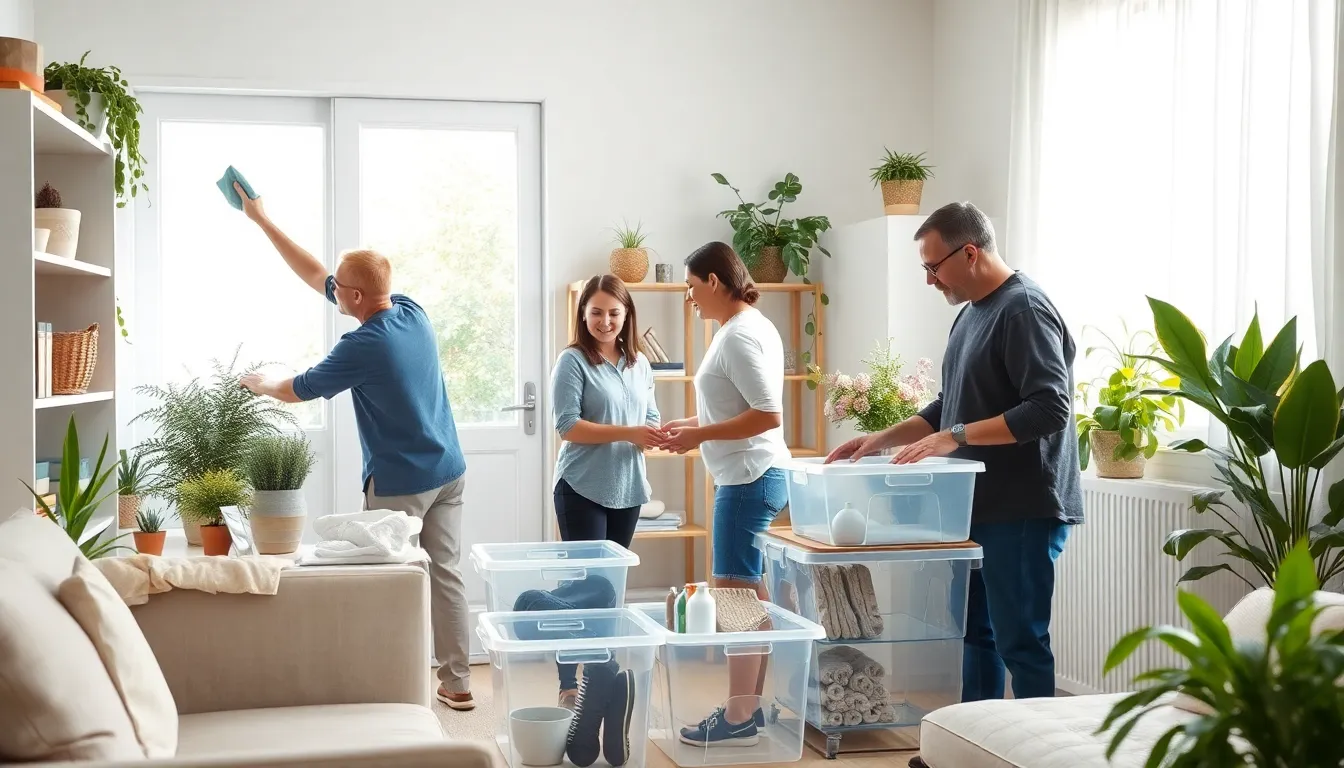
Organized cleaning offers significant advantages that enhance not only physical spaces but also mental well-being. By integrating systematic practices, individuals can experience greater efficiency and reduced stress.
Increased Efficiency
Increased efficiency results from organized cleaning methods that streamline tasks. By categorizing cleaning activities, individuals maximize productivity during sessions. For example, designating specific days for dusting, vacuuming, and decluttering minimizes distractions and ensures each task receives focused attention. Utilizing storage solutions like bins and shelves reduces the time spent searching for items, creating a smoother workflow. Implementing a routine fosters consistency, making maintenance simpler and quicker. Ultimately, a structured environment enables individuals to accomplish more within shorter time frames.
Reduced Stress
Reduced stress stems from the clarity and order that organized cleaning provides. A tidy environment encourages tranquility and enhances focus, fostering a sense of control. Cluttered spaces often contribute to feelings of anxiety and overwhelm, while organized areas promote relaxation. For instance, having designated spots for frequently used items ensures easy access and minimizes frustration. Establishing a regular cleaning schedule also alleviates the pressure of last-minute clean-ups, contributing to a calmer mindset. The act of cleaning itself can serve as a meditative practice, allowing individuals to unwind and recharge mentally.
Essential Tools for Organized Cleaning
Utilizing the right tools enhances the efficiency of organized cleaning. Key supplies and organizational tools facilitate systematic cleaning practices, promoting clarity and tranquility.
Cleaning Supplies
- Multi-surface cleaner: Effective for various surfaces, reducing the need for multiple solutions.
- Microfiber cloths: Highly absorbent, they capture dust and dirt without scratching surfaces.
- Brooms and mops: Essential for maintaining clean floors, suitable for different types of flooring.
- Vacuum cleaner: Accommodates various surfaces, efficiently picking up debris and allergens.
- Trash bags: Sturdy options help streamline decluttering by providing a space for unwanted items.
- Disinfectant wipes: Convenient for quick clean-ups and sanitizing high-touch surfaces.
Organizational Tools
- Storage bins: Versatile options allow for organized storage of similar items, reducing clutter.
- Labels: Clear labeling categorizes bins and shelves, making it easy to locate items.
- Shelving units: Maximizes vertical space, keeping items accessible and organized.
- Drawer organizers: Assist in item categorization within drawers, ensuring everything has a designated spot.
- Basket systems: Aids in containing smaller items, facilitating easy transport and organization.
- File systems: Important for managing paperwork and keeping essential documents in order.
Tips for Effective Organized Cleaning
Implementing organized cleaning requires some strategies that make the process straightforward and efficient. The following tips focus on creating structured routines and effective decluttering techniques.
Creating a Cleaning Schedule
Establish a cleaning schedule to ensure regular maintenance of living spaces. Designate specific days or times for various tasks, such as vacuuming on Mondays and mopping on Wednesdays. This allocation prevents cleaning from becoming overwhelming. Use a calendar or a digital app to keep track of tasks and deadlines. Utilize checklists to mark off completed items, fostering a sense of accomplishment. Adhering to a routine not only promotes consistency but also improves overall cleanliness.
Decluttering Techniques
Adopt effective decluttering techniques to streamline spaces and enhance organization. Start with one room or area at a time, focusing on surfaces first, such as countertops and tables. Employ the “Four-Box Method”: label four boxes as “keep,” “donate,” “trash,” and “relocate.” Sort items into these categories to simplify decision-making. Utilize the 90/90 rule—if an item hasn’t been used in the past 90 days and won’t be used in the next 90 days, consider letting it go. Finally, maintain organization by regularly reassessing items. Scheduling monthly decluttering sessions prevents accumulation of unnecessary belongings.
Embracing organized cleaning transforms not just spaces but also mindsets. It cultivates a sense of calm and clarity that enhances daily productivity. By implementing systematic practices and utilizing effective tools, individuals can create environments that support their well-being and efficiency. Regular maintenance and thoughtful decluttering ensure that living spaces remain serene and functional. Ultimately, organized cleaning is more than a chore; it’s a pathway to a healthier and more focused lifestyle.



